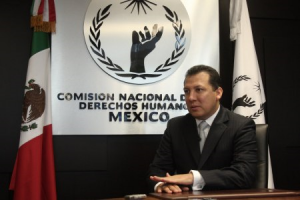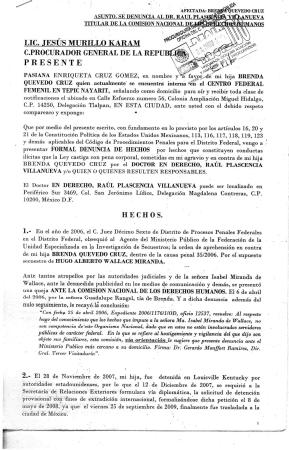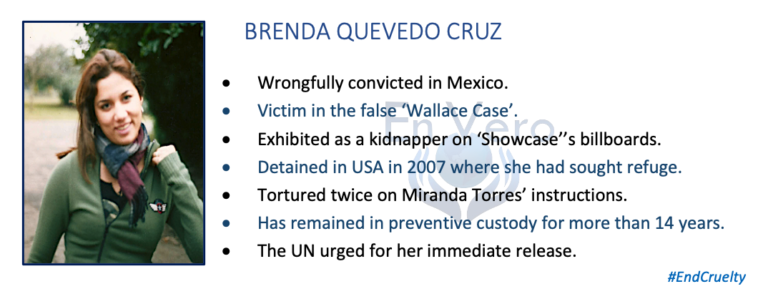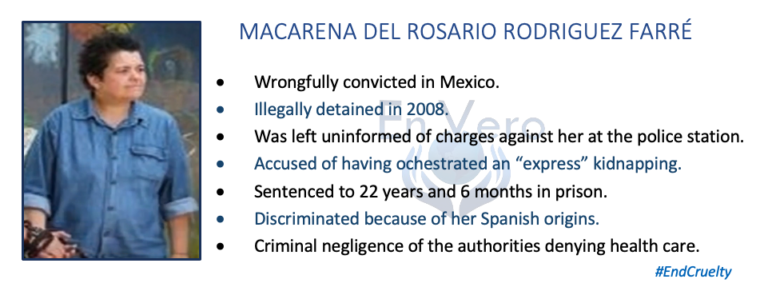
Source: Los Ángeles Press
vía MXporFC (Spanish)
Author: Guadalupe Lizárraga
October 1, 2014
Translation: JB for CART / ACDV
CNDH has failed in its mission through corruption and influence peddling: NGO
On behalf of the Canadian Association for Rights and Truth, its President, David Bertet, spoke out against influence peddling in choosing the new head of the National Commission on Human Rights (CNDH, for its abbreviation in Spanish). He noted cases of corruption in this institution, which has affected the lives of many families and for this reason, in his opinion, persons who have held senior political positions should not be chosen for this task due to the level of commitments they have established with individuals and power groups.
Bertet, who also was one of the signatories to promote the impeachment of Plascencia Villanueva for his acts of omission in hundreds of serious cases of human rights violations, recalled that Plascencia was chosen as head of the CNDH through the proposal made by Isabel Miranda de Wallace, who has been denounced before the PGR (the Attorney General’s Office) for faking the kidnapping and killing of her son, Hugo Alberto Wallace. “Which is particularly symptomatic of an extremely serious departure from the sense of ethics within the Mexican justice system,” said the activist.
Bertet emphasized that the CNDH failed in its mission of timely recording human rights violations. “Not only for the dozen families, victims of officials corrupted by the same person who supported Plascencia, Isabel Miranda de Wallace, but also for the artificial divide that created between human rights and privileges of the self-proclaimed ‘victims’ without being so, as this woman.”
The fake Wallace case favoured by Plascencia
The Canadian activist, David Bertet, who has backed the investigative work on the fake kidnapping and killing of Wallace said that “with Plascencia the consistency of the law and the Mexican Constitution was broken to benefit private interests” and mentioned that among these were those of the person who proposed him for public office.
An example of the seriousness of the failures incurred by Plascencia as head of the CNDH was ignoring the acts of torture in the case of Brenda Quevedo Cruz and in those of four other accused persons to support the fake Wallace abduction; in addition, the documentation concerning arbitrary detentions, deprivation of liberty and abuse of power by officials against relatives of the victims was also ignored.
Enriqueta Cruz, mother of Brenda Quevedo, filed the formal report against Plascencia before the Attorney General of Mexico on May 23, 2013, for his acts of omission in the human rights violations perpetrated against her daughter in September 2009 and October 2010. When the report was filed before the CNDH, this institution’s reply was that the case did not fall not within its competence but rather within that of the public prosecutor, even though it specified the abuse by judicial authorities, such as the direct participation of ministerial officers in the physical torture and the rape of the victim and, later on, the positive outcome of the Istanbul Protocol, which validated the torture.

Complaint against Plascencia before the PGR
A similar case was the one of Alberto Castillo Cruz, accused of the same fake kidnapping, who was also tortured in October 2010 to force him to incriminate himself and apologize to Isabel Miranda. His mother, María Elena Cruz, and his uncle Luis Carrillo Bustamante filed a report with the CNDH. In turn, the CNDH once again failed to intervene and answered that it was not within its competence; for which Raúl Plascencia was again reported to the PGR.
One of the complaints, between 2006 and 2010, ignored by the CNDH that fatally struck one of the victims of human rights violations was the one filed by the mother and sister of César Freyre Morales, a manufactured guilty defendant in the same Wallace case. María Rosa Morales and the late Julieta Freyre were jailed for a year and a half following the allegations about false crimes made by Miranda, while the CNDH once again failed to make recommendations to government officials involved in this situation.
“Such complicity between Plascencia and the person who made up the kidnapping and murder of her son, it is the most indicative example of corruption not only within the CNDH but also in the institutions of justice in the Mexican State,” said Bertet to Los Ángeles Press, and warned that “as long as traffic peddling is the implicit rule in appointing the Mexican ombudsman, the real victims will continue to be helpless and their suffering will be ignored.”
On the possibility that Mauricio Farah, Secretary-General of the Chamber of Deputies, become the successor to Plascencia as head of the CNDH, Bertet expressed concern: Simply by the fact that the pre-candidate currently holds public office, and his candidacy is being pushed by the PRI (the governing political party), it should be enough to rule it out. Mexico deserves that an institution the size of the CNDH be really independent from the executive and legislative branches, and not one more door to profit from influence peddling.”





